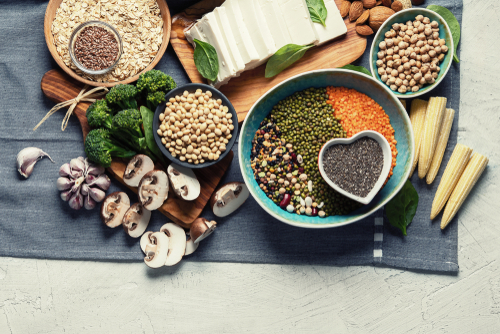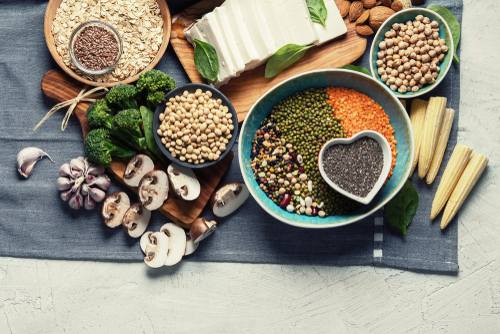Part One: Alternative Protein for People of All Ages
Question: Do people really care about all the new plant-based and cell-based meat companies? I see gazillions of dollars going into making and selling alternative protein, and it looks like sales are all over the place, up and down and all around. Is there really going to be demand for all these products? Who’s going to eat them, long-term, when the dust settles?
Stephanie: Short term, lots of people. Long term, everybody. It’s not just the hippies anymore.
There’s this convergence of demands that alternative meat, well, meets. Not to be punny about it.
There are “ordinary middle-class consumers” who really are waiting for alternatives to meat, but that’s too big of a box. Like I said, it’s a bunch of different addressable markets coming together, a convergence, and it’s really like nothing I’ve seen in my whole career in food service.
So for instance, there’s a generational convergence.
Though they tend as a group to care less about being “green” and sustainable, Boomers hear their doctors telling them to eat less meat for their health. They’ve grown up eating meat, and they want something that tastes and has the mouth-feel of meat, not a veggie burger. They care about their grandkids and the future, and they care about being around to see them, so they want to stay healthy. As alternative proteins approximate meat, more and more, in texture and taste, Boomers become more willing to try those products.
And of course, Boomers include the people who were hippies, right? Now they’ve made some money and raised their kids, but may still have those same values they had when they were going around picketing and giving the finger to The Man. Some of them still like the “alternative” in alternative proteins.
Gen X is my generation, with kids and/or grandkids and aging parents and businesses and whatever work-life balance is supposed to be. Busy and maybe a little cynical. We grew up in the greedy 80’s and we want food to be convenient and good for us and for it to taste good, too. We want it all, damn it, and somebody ought to give it to us.
And we’re in the middle, right? We want a world to be here for our kids and grandkids, so we’re looking for sustainability, and we’re also looking at Mom and Dad and thinking… oof, wanna set myself to be healthy later on, too.
Gen X appreciates the health benefits of less meat and that it’s all becoming more convenient. We pick up analogues in the dairy aisles, in the deli, and in frozen foods. We know what a flexitarian is, and we’re willing to embrace that healthier lifestyle, especially if it doesn’t add a bunch of items to the to-do list.
People who have grown up alongside tech, the Gen Y folks who are in their twenties and thirties now, know stuff. They’ve seen the documentaries about hormones and antibiotics and feedlots. They’ve got kids with food allergies and ADHD and asthma, and they look at diet as a contributing factor for those things.

They’re also thinking about the environmental impact of animal farming, and they’re invested in changing things. They may not be vegans or even vegetarians, but they’ve grown up with No-Meat Mondays and the idea of a flexitarian diet being healthier for people and the planet. Those ideas feel familiar and comfortable to them; they don’t need to be convinced or converted in the same ways that older generations do.
Young people are — or should be — just furious with the rest of us and understand that the world is on fire and have their hands up, with a big “WTF?” for those of us in earlier generations. Gen Z has lined up behind Greta and understands that we must do something.
A plant-based diet for a lot of young people is like the least you guys can do, and also by the way stop being such a big, fat jerk. Stop being cruel to animals, stop burning the rainforests, stop decimating the oceans, stop feeding us crap that will kill us.
And honestly, they’re right, change has to come from a lot of different directions, and better choices for proteins are a part of it.
And there’s more to tell you, too, but nobody has that long of an attention span and we’re very busy, very important.
To recap: Every generation on the planet has reasons to buy and eat and love alt proteins: environmental reasons, animal cruelty reasons, personal health reasons. Some combination of those applies to nearly all of us.
We’ll talk about more ways that the markets converge next week. For now, there’s innovation to be made and future-building to do in the sustainable foods and alternative meat spaces. That means buying and selling and business to do. Giddyup!
Coming up next — Part Two: Geographical Convergence and the Global Market
And Then — Part Three: Price Parity, Economic Convergence and the Future of Alternative Protein


Recent Comments